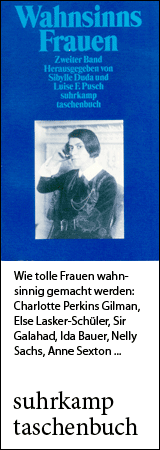Biographies Irmgard Richter-Heinrich

Born 20 December 1916 in Breslau/Wroclaw
One of the first three midwives in Wolfsburg
Biography • Literature & Sources
Biography
The year was 1942. The records of the KdF-Stadt (Kraft durch Freude-Stadt) already listed 398 births for the year, and there would soon be many more. A midwife was sorely needed, for Dr. Wolf, the local general practitioner, could no longer manage the work-load with his two assistants. A medical council in Gifhorn was responsible for the employment of medical personnel. Irmgard Richter-Heinrich put in her application there for a position. She was, after all, a well trained professional with experience. She had completed her training and examination in nursing in 1936 and in midwifery in 1938. In spite of her relative youth Irmgard Richter was given the job ahead of several other applicants and began her practice as a nurse-midwife in the Scheffelhof in the “KdF-City.”
Irmgard Richter had grown up with two younger siblings. In 1932 she attended the women’s technical school, followed, at her father’s wish, by two years at the business high school (höhere Handelsschule). Influenced by a friend, she gained an interest in medicine and decided to become a nurse. Her father strongly opposed this, while her mother accepted her choice. Irmgard Richter stuck to her plan, trained in all the hospital departments, and worked for a year in the operating room. Here she delivered anaesthesia for caesarian sections. During this time she developed the desire to become a midwife.
She found her first position in the regional women's clinic (Landesfrauenklinik) in Hannover. Soon thereafter she was asked to direct a private obstetrical clinic in the same city, and she remained there until 1942. The bombing raids in Hanover and the many on-call shifts took such a toll on her strength that she was forced to give up her position and look for something in a “quieter” location. She learned that the “KdF-City” was looking for a midwife, applied, and was given the job.
Her start in Wolfsburg was not what she expected. Frau Richter-Heinrich had assumed that as a newcomer, still unknown in the town, she would be able to set up her apartment and get settled in peace. How wrong she was! It was only her second or third night when the doorbell rang wildly. She opened the window—a woman stood in the street below and shouted for her to attend a nearby birth in progress. She arrived at the address with her little obstetrical case to find a small child crying in its bed. A woman—the mother—was sitting on a chair in the bare room, already holding the newborn on her lap, umbilical cord still intact. Irmgard Richter looked around for clean baby clothes and diapers. There were none; a kettle with soiled diapers was standing on the stove. Following her principle of an absolutely sterile environment she cleaned the room. Her search for fresh diapers yielded only a moderately clean petticoat; she wrapped the baby securely and laid it in its mother’s arms. Then she straightened up the room and washed and dried the laundry—she worked for hours. In this span of time she could have ordinarily delivered several babies. So that’s how it would be in this town of “peace and quiet!”
This first sobering experience cured her of any illusions—she had come from a modern lying-in hospital in Hannover—and confronted her squarely with reality. From now on she always took her own linens along when called to a delivery, just in case. In this way her own as well as her mother’s supply of linens was reduced to an absolute minimum. But what else could she do? One could buy items of daily need only with ration coupons, which everyone tried to get hold of. Women would pretend to be pregnant in order to acquire coupons and extra rations. If they didn't need the pregnancy items themselves, they would exchange them for other scarce goods.
Irmgard Richter provided her services to rich and poor, day and night, during bombing raids and to refugees on their long treks. She approached her work joyfully and was ever astonished at the variety and surprises that life held in store. She still speaks enthusiastically about her profession, which “was the right one,” at least for her. People felt they could trust her, and it was often the poorest who showed her the greatest hospitality and warmth. Irmgard Richter's willingness to help, her swift and sure way of working made an impact; the populace remembered her later when times were hard. For example, in the difficult months after 1945 Polish families brought this or that over and took care that she and her mother didn't go hungry.
Richter owed her nickname, “the roaring midwife,” (“die rasende Hebamme”) to her means of transportation. After several bicycles of hers had been stolen she bought a motorcycle, on which, day and night, she rode noisily to births. In 1951 she bought her first automobile, which unfortunately proved to be in need of much repair. But how she rejoiced when she passed the test for her driver's license—which three men had failed! Incidentally, one had to bring along one's own petrol/gasoline and feed the driving instructor….
Irmgard Richter married twice. Her first husband, missing in action, never returned from the war. In 1960 she married again. She built a house in Wolfsburg and enjoyed social gatherings with friends. Although she experienced much worry and sadness in her private life she nevertheless always regained her high spirits and could communicate her enthusiasm to others. During the war and the postwar years Richter sacrificed every bit of her free time; babies were being born around the clock, and the midwife was often roused from her bed, even on occasion from a birthday celebration. But by the end of the 1960’s Irmgard Richter had given up her practice in Wolfsburg, because with the advent of “the pill” there were fewer home births and it simply was no longer worth it to keep working. Today she lives in her retirement residence in Spain. She enjoys traveling, working in her garden with its rare plants and flowers, and getting together with friends. Her life's motto, “To stand still is to move backwards,” applies to Irmgard Richter to this day.
(Revised for FemBio by Luise F. Pusch Translated by Joey Horsley)
Author: Hannelore Künne
Literature & Sources
 aus: Frauen in Wolfsburg – EinBlick in ihre Geschichte, 1998. Hrsg. Stadt Wolfsburg, Frauenbüro. ISBN 3-87327-031-5.
aus: Frauen in Wolfsburg – EinBlick in ihre Geschichte, 1998. Hrsg. Stadt Wolfsburg, Frauenbüro. ISBN 3-87327-031-5.
If you hold the rights to one or more of the images on this page and object to its/their appearance here, please contact Fembio.



